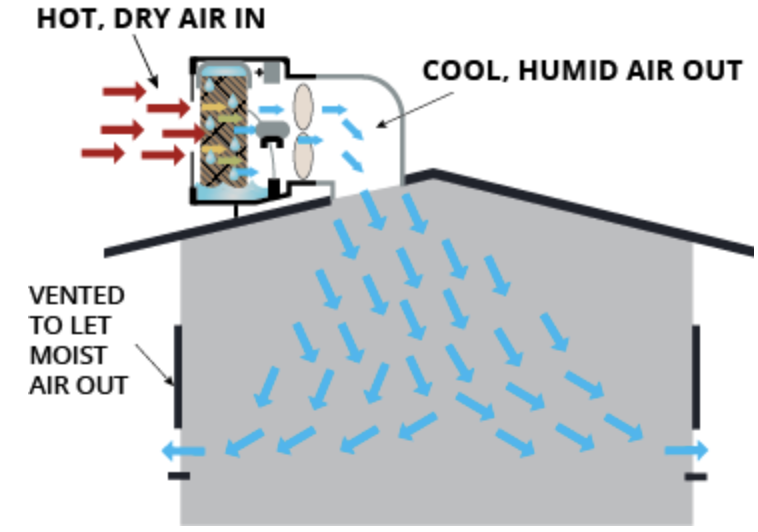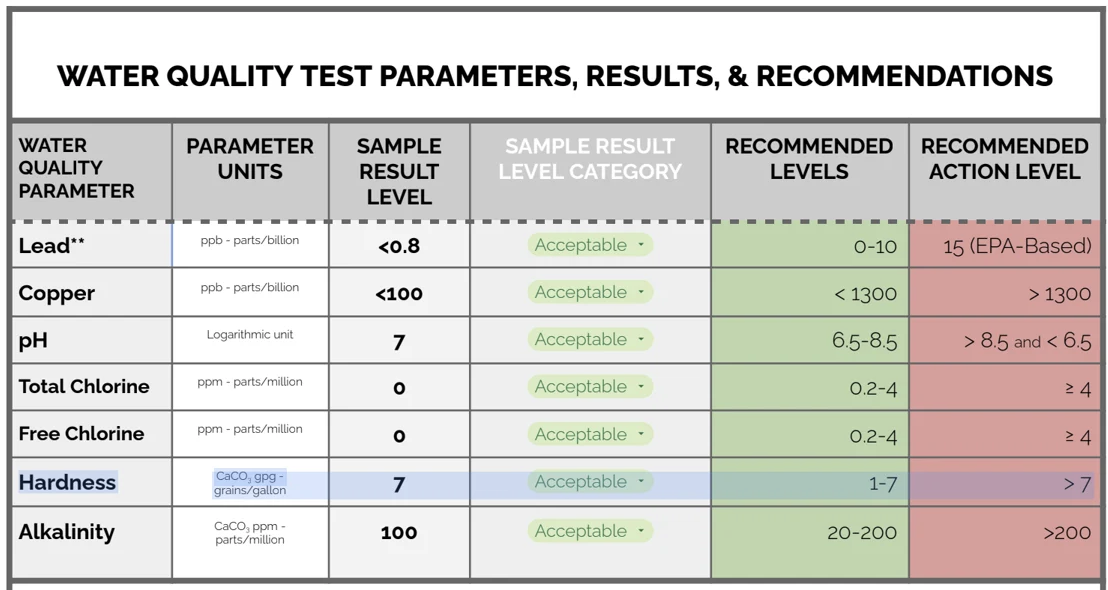Concrete roof tiles can last 50+ years and offer great protection against hail, high winds, damage, fire and rot. In the event of cracked roof tiles, damaged tiles should be replaced. The eventual replacement cost of a concrete tile roof will be greater than a standard composition shingle.
What does hail damage do to a roof?
Hail damages the roof by breaking down the shingle over time. Rarely is the hail damage large enough to cause immediate leaking, however over time the roof will continue to deteriorate until the point that water can penetrate inside the home. Hail damage doesn’t usually look like large holes or cracks in the shingle but instead is commonly just slight damage to the surface of the shingle with very few missing granules or remnants of impact. However, over time the damage expands and becomes worse. Hail damage isn’t always noticeable immediately following a hailstorm. If you suspect your roof may have been damaged in a hail storm it is important to have a qualified roofing professional inspect your roof as soon as possible.
Source - Rowin Construction
How often should a whole house humidifier be serviced?
Whole house humidifiers work to regulate indoor air humidity levels to an optimal range of 30%-50% indoor relative humidity. Depending on the style, use and home water quality, maintenance intervals vary. With that being said, generally whole house humidifiers should be serviced 1-2 times per heating season to help prevent scale buildup and mold to ensure healthy and efficient operation.
How long does an asphalt shingle roof last?
The average lifespan of an asphalt shingle is approximately 20-25 years. The main risks to your roof in Colorado are wind and hail. Due to the increased risk of these weather related items the average lifespan of a roof in the Denver area is only about 7 years.
Why should windows be open when running a swamp cooler?
When you think about cooling a home, it’s not intuitive to consider opening windows, but in the case of an evaporative cooler it’s actually recommended.
Here’s Why: An evaporative cooler works by blowing cooled air into a home. Since air is being blown in at such a high rate, usually 3000+ cubic feet of air per minute, all of that air needs somewhere to go. By opening windows or doors, the air will have a place to travel and continue to circulate throughout the home. Opening certain windows is also a way to control the flow of the cooled air to maximize comfort in certain desired areas of the house.
How often should HVAC equipment be serviced and what does the service include?
Regular maintenance of your HVAC equipment is important to ensure that it runs efficiently, effectively, and safely. The frequency of HVAC servicing can depend on the age of the equipment, the amount of use it receives, and the manufacturer's recommendations. However, as a general guideline, it is recommended to have your HVAC equipment serviced at least once a year.
A typical HVAC service includes several tasks that are designed to inspect, clean, and tune-up the system. Here are some of the common tasks that a HVAC service may include:
Inspection of the HVAC system: A technician will inspect the entire system, including the furnace, air conditioner, ductwork, and thermostat, to ensure that it is working properly and is safe to operate.
Cleaning of the HVAC system: The technician will clean the components of the system, such as the blower fan, evaporator coil, and condenser coil, to remove dust, debris, and other contaminants that can reduce the system's efficiency and air quality.
Replacement of filters: The technician will replace the air filters in the system to ensure that they are clean and functioning properly.
Lubrication of moving parts: The technician will lubricate the moving parts of the system to reduce friction and wear, which can extend the life of the system.
Adjustment of settings: The technician will check and adjust the system's settings, such as the thermostat and fan speed, to ensure that it is operating at peak efficiency.
Testing of the system: The technician will test the system to ensure that it is functioning properly and is able to maintain a comfortable temperature and humidity level.
Regular HVAC maintenance can help prevent breakdowns, extend the life of your system, and save you money on energy bills. It's important to work with a qualified and experienced technician to perform the maintenance and ensure that your HVAC system is running safely and efficiently.
Why are there plastic PVC pipes on my furnace instead of a metal exhaust flue?
How does radiant heat flooring work and what are the two common types?
Radiant heat flooring is largely considered to be the most quality and luxurious method of home heating. Radiant heat floors rely on heat radiating from the floor into the home. This typically provides a more consistent and thorough heating than a forced air system where hot air is blown into a room.
There are two common methods for radiant heated floors:
1. Electric radiant heated floors:
This is most commonly used in retrofit applications and/or in smaller localized areas such as a primary bathroom or kitchen floor. Whole home electric installations are not typical.
2. Hot water radiant heated floors:
This method is most commonly used where the home's primary heating system is radiant heat floors. Hot water is produced in a boiler unit and then circulates through a series of pipes in or under the floor. Heat is transferred from the hot water into the space by way of radiant heating and then returns to the boiler to be reheated. Whole home radiant floor systems are generally designed to have multiple zones for optimal comfort and control.
What is the difference between a boiler and a furnace?
Is a sewer scope necessary on a home with a septic tank?
Yes. A sewer scope inspection is different and is generally a separate service than a septic tank inspection so you still want to have a sewer scope inspection conducted on a home with a septic tank.
A sewer scope inspects the condition of the sewer line from the home to the septic tank and a septic inspection strictly looks at the tank and leach field components. It is just as important to ensure that the sewer line is working properly for a home with a septic system as it is a municipal sewer system.
Can home water pressure be too high?
Yes. Domestic water pressure should be between 40-80 psi. Although strong water pressure is almost always desired by homeowners, pressure over 80 psi can lead to a host of issues and should be regulated.
Here are some issues with water pressure that is too high.
High water pressure can damage seals in fixtures and appliances causing premature failure and leakage.
“Water hammer” can occur when pressure is too high causing jolts in the water distribution system that lead to banging and knocking.
Excessively high water pressure can rupture supply hoses such as those to a refrigerator, dishwasher and washing machine. This is another reason why we always recommend braided stainless steel hoses that are more burst resistant.
What are the most common sewer line issues?
Without question, we advise every one of our clients to have a sewer scope performed as part of the home inspection. Why do we advise this? Simply put, sewer line issues are one of the most common home inspection issues with repairs being in the thousands of dollars.
Below is a list of the most common sewer line issues:
Blockages
Belly’s or low spots
Cracks or breaks
Separations or offsets
To learn more about sewer line issues, check out this blog post.
How long does a standard water heater typically last?
A standard tank water heater is typically expected to have a 12 year service life. Most water heaters come with a standard manufacturers warranty of 6 years, with options of up to 12 years. Generally tanks at or past 12 years are considered past expected service life.
Equipment age can be determined by following the date guide on the Building Intelligence Center website. Link: https://www.building-center.org/
Where does lead in water come from?
What are the maintenance requirements of a tankless water heater?
Tankless water heaters should be serviced annually by having the system flushed to remove scale buildup and deposits. Mineral buildup will reduce the efficiency of the heat exchanger and shorten the lifespan of the unit. Routine maintenance is particularly important in homes with hard water as scale buildup will occur more quickly. Cleaning of the air filter and water filter (if present) also need to be conducted on an annual basis to ensure proper operation.
How much does it cost to replace a water heater?
Replacement cost for a standard tank water heater can range from $800-$2800 depending on size, location, etc.
Replacement cost for a standard tankless water heater can range from $1200-$4800 depending on size, location, etc.
What is the difference between a sewage ejector pump and a sump pump?
Although sump pumps and sewage ejection systems, commonly referred to as “lift stations”, look similar at a glance, it’s important to know the difference between the two. Simply put, sump pumps handle and remove ground water, whereas sewage ejector pumps handle and pump domestic sewage produced by the use of plumbing fixtures in a home.
Sewage ejector pumps are necessary when the level of the sewer line is above the lowest plumbing fixture or drain line within a home. This is standard and necessary where a plumbing fixture has been installed in a basement with no previous plumbing, or commonly in new construction where an old home was demolished and replaced with a new home containing a basement. The level of the municipal sewer line cannot be lowered, so the home has to rely on a pump to “lift” the sewage to a point where it can naturally drain to the sewage by force of gravity. Sewage ejector pumps are typically identified by having a sealed lid with 2 pipes, whereas sump pumps often have only 1 pipe and may or may not have a sealed lid.
What is hard water?
“Hard water” is water that naturally has high mineral content due to the soil that it once percolated through. Municipal water can be hard in addition to private drinking wells due to the fact that municipal water treatment disinfects, but does not treat water mineral content. Hard water does not pose a health hazard, and can even offer some mild health benefits, but it can lead to dry skin, limescale and soap scum buildup. Hard water can also lead to premature failure of water using appliances as the scale buildup can reduce water flow. A water softening system can be installed to neutralize hard water if desired.
How to determine if you have hard water?
Water hardness is a measure of the concentration of minerals in the water, mainly magnesium and calcium. This can be measured and is one of the test parameters that is included in the ABP Water Quality Test. See the image below for sample results included in the ABP water quality test.
What is the problem with galvanized steel piping?
Galvanized steel water supply piping was a commonly used plumbing material from the 1880’s-1960’s. Initially used as an alternative to lead pipes, it was later learned that galvanized pipes heavily rust and corrode from the inside outward as the zinc coating wears off. In addition to failing and leakage, lead can also be introduced into the water supply from the galvanizing process. The expected service life of galvanized steel plumbing is around 60 years, so all galvanized steel plumbing is theoretically due for replacement by now.
What is Polybutylene plumbing and why is it a problem?
Polybutylene plumbing is a type of plastic resin water pipe that was a cheap and easy alternative to copper and was manufactured from 1975 to 1995. Polybutylene was banned in 1995 due to failure of pipes in the form of leaking and rupturing. Polybutylene is generally identified by its gray color with blue lettering usually stamped with “PB2110” and should be evaluated for replacement by a qualified plumbing contractor.






